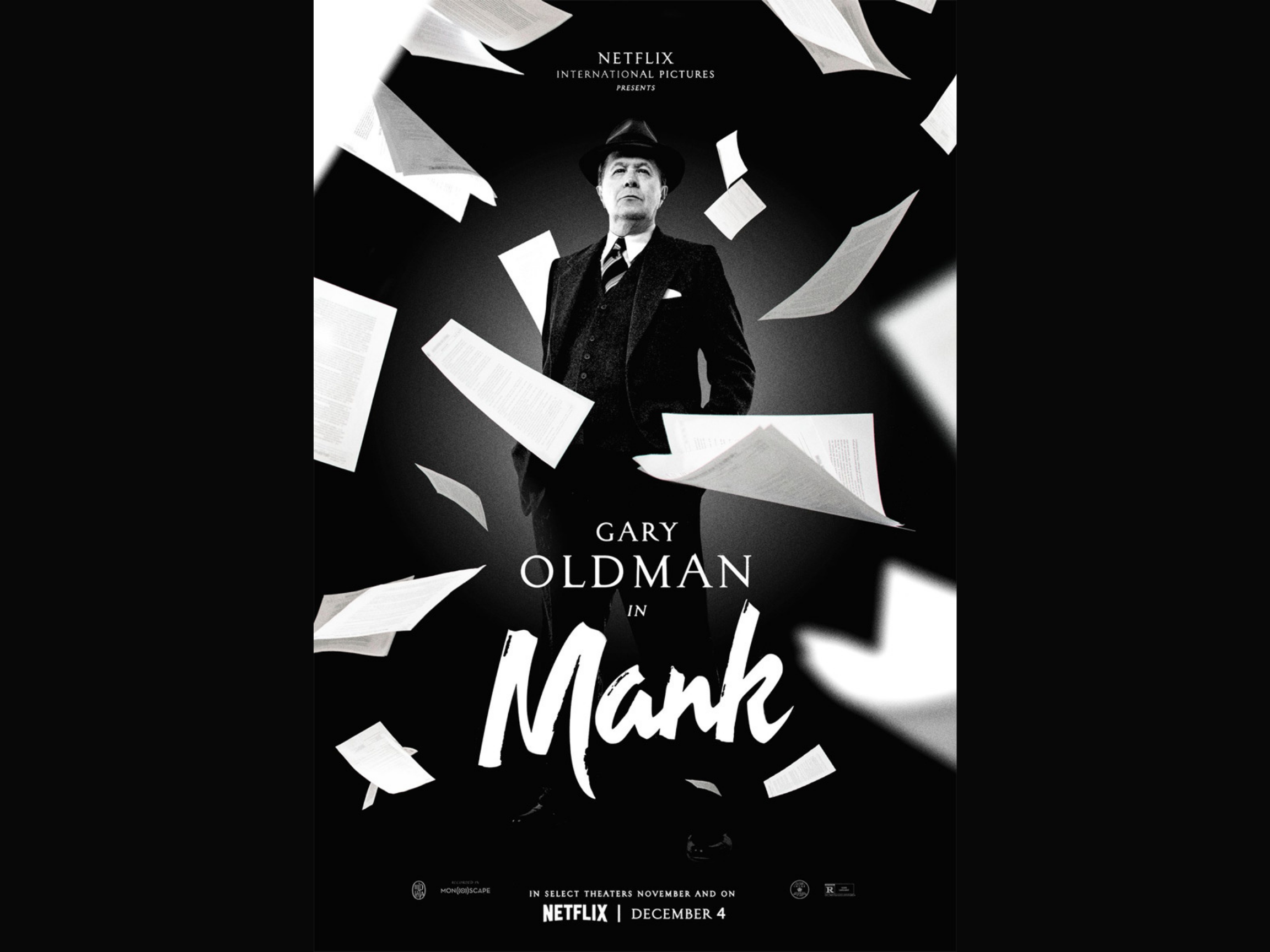Darkly lit rooms, pools of blood on the floor, anxiety and jealousy on full display, these are what could be considered hallmarks of a David Fincher film. One of the most captivating auteurs of the last two decades, Fincher has earned the creative autonomy an artist like himself demands, which he has utilized to communicate his one founding principle: “people are perverts.” So, how does the director of “Fight Club,” “The Social Network” and “Gone Girl” bring his signature cynicism to a black-and-white biopic about the man who wrote “Citizen Kane”? Turns out, he does it with ease. There is no murderer, vigilante or detective in “Mank,” and yet the absence of these Fincher film staples doesn’t inhibit his exploration of other ones, such as geniuses and men with egos the size of hot air balloons.
Certain promotional material for the film has the title stylized as “MANK,” which is fitting since Fincher does a spectacular job of having the eponymous character front-and-center with every scene of the film. Chronicling Herman Mankiewicz’s writing of “Citizen Kane” while flashing back to his relationships with those who would inspire the film, “Mank” runs the severe risk of having its main character become the least interesting personality on screen. With a story that includes Orson Welles, Louis B. Mayer, William Randolph Hearst and Upton Sinclair, any other director could have easily slipped into focusing on the larger-than-life figures around Mank. Yet Fincher, with the help of his late father’s focused screenplay, is able to have Gary Oldman’s performance as the screenwriter constantly grab ahold of the audience’s attention.
The film could have gone in a million different directions, as it holds the special advantage of detailing the life of a man most have absolutely no knowledge of. Were this a biopic similar to Fincher’s “The Social Network,” where the ending is not only known by most of the audience but actually affects their everyday lives, “Mank” would have lost much of its excitement. The drama of the film comes from witnessing the arc of a man truly foreign to viewers. What begins as a simple story of a writer working on a screenplay unfolds into the ups and downs of an alcoholic surrounded by men below him in both intellect and morality.
That being said, the film is far from simple, for Mankiewicz was far from the perfect man and his life was far from that of the average writer. In an unexpected connection to the modern zeitgeist, the film takes a dive into the ugliness of media and politics. So as not to spoil any scenes or cameos, the only specifics to be mentioned are that Upton Sinclair’s gubernatorial run for California and his outspoken socialist views end up grabbing Mank’s interest and propel him to clash with those around him. Whereas this political subplot and the main storyline of the screenplay could have served as enough fodder for a two-hour film, the Finchers bring in one more supporting character to humanize the man even more: Marion Davies. A sort of platonic affair, his relationship with Davies shows Mank to be someone more than the drunk who gambles away thousands of dollars of a debt that has already been forgiven. It should be noted that while Oldman stands among the very best actors working today, the scenes revolving around Mank’s relationship with Davies never feel like he is carrying the burden of the scene. In fact, Amanda Seyfried’s portrayal is another highlight of the film. She brings a certain respect to a woman whom many would have — and did — looked down upon for finding her way to Hollywood stardom through her romance with the aged William Randolph Hearst. She isn’t a clutz that falls upwards, but a New Yorker who knows only how to speak the truth and stands by that all the way.
Now, for everything that has been mentioned of the film, it is clear that it stands apart from everything else Fincher has done, for better or for worse. Many of Fincher’s calling cards are absent and with them the dark, ominous tone he has become known for. There is no saying that this film, as well-made as it is and as genuinely interesting as its subject is, will be for everyone. At the end of the day, it’s in black-and-white, has no action sequences and displays a cast with absolutely no diversity. For plenty of people, any one of these features would be enough to push them away, so this trifecta may certainly ensure disappointment for some audiences. But, for those who are merely interested in a good story made by artists who put in the most, “Mank” will definitely meet those requirements and perhaps open them up to a world of old Hollywood — which is not as boring as they may think.
Contact Allan Lopez at allan300 ‘at’ stanford.edu.
